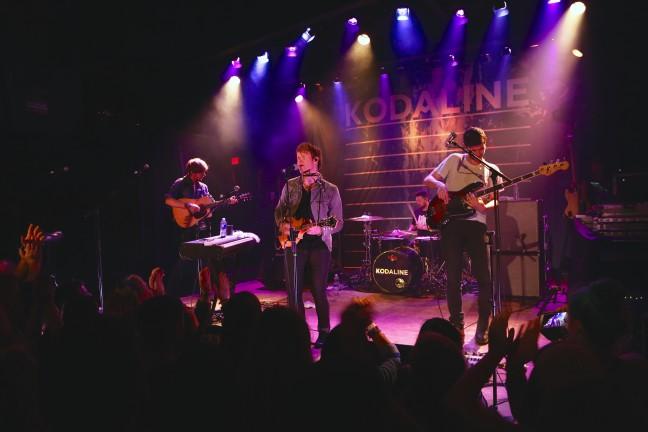Long guitar riffs, intense drum solos and a large masked, vaccinated crowd cheer as music venues adapt to safely bring back indoor, live music this fall for the first time since March 2020.
Despite many venues reopening their doors to host concerts, there are still underlying concerns about the industry. The question of how to bring back previous customers still cautious of COVID-19 remains unanswered.
According to Steve Sperling, who is the general manager at the Barrymore Theatre, returning to live venues is still not an option for some people.
“The biggest challenge I would say we have now is getting those people who are still not ready to come back,” Sperling said.
One way to get reluctant fans back in seats could be tight COVID-19 policies. Rigorous vaccination policies have been implemented by nearly every venue in Dane County, though they can slightly vary.
The Stoughton Opera House unequivocally requires full vaccination two weeks prior to the show, while others, such as the Barrymore Theatre will allow patrons to attend with a negative test taken within the past 72 hours.
Following Dane County guidelines, all indoor venues require that concert-goers wear masks at the shows, but this can be difficult to enforce when many spectators are removing their masks to consume alcohol and other concessions during the show.
“It’s very difficult to do once people go to their seats, once they’re in the theater and it’s dark,” Sperling said. “It’s very difficult to enforce it. You would essentially be having an army of people traveling through the theater telling people to mask up.”
Experts, such as Evan Sylvester who is the regional director of infection control at the Seattle Swedish Medical Center, said in August that requiring proof of vaccination and masks can make concerts relatively safe, but he did caution about guests removing masks to drink, saying this will lead to more exposure.
While the food and beverage problem is one that plagues most venues, Director of the Stoughton Opera House Bill Brehm said he is lucky because the layout of his building lets him avoid the conundrum.
“Our concession space is on the first floor of the building and the theatre is on the second and third floors of the building, so we’re able to have masks be something that’s optional in the bar if people want to be in there,” Brehm said.
Once people were in their seats, they stayed in their seats with their masks on, he added.
The new changes with masking may have been intended to slow the spread of COVID-19, but some, such as University of Wisconsin freshman Mack Reed, believe the policies have impacted the atmosphere of the shows as a byproduct.
Reed, who has helped arrange shows at the Wisconsin Union Directorate and attended concerts held at Der Rathskeller, among other campus venues, has observed a shift in the way people experience shows in the pandemic era.
“Going to concerts with masks on is different,” Reed said. “People are a lot more likely to enjoy the show on their own rather than socializing with other people.”
At campus events, following UW policy, attendees are not required to be vaccinated nor show any kind of negative test result — a shift from the policies of most non-university facilities.
Brehm believes the Stoughton Opera House was one of the first venues in the area to announce their vaccination policy in a decision he said he “agonized” over. Their plan was announced via Facebook Aug. 4, after the Delta variant had taken hold in the United States and led to a sharp uptick in cases. Responses on the post varied from one calling the Opera House’s decision “fantastic” to another stating the theatre was committing “absurd discrimination.”
Barrymore renovations aim to attract bigger names, new events
In the end, though, Brehm doesn’t think his policy has cost him any customers.
“The people who cry the loudest are people who maybe had bought a ticket to a single show at the Opera House eight years prior,” Brehm said.
Still, the landscape remains murky, as business owners and those in the music field are carefully watching the rise of the Omicron variant which recently spread through a concert in Scotland, according to NME Australia.
Brehm feels lucky the Opera House is fast approaching a scheduled winter break in concerts, and he said he will be able to survey the landscape and adjust his policy if necessary.
“Before the whole Omicron thing happened, I had hoped that the reassessment period would be one where we would be able to say that we could loosen up the restrictions,” Brehm said.
Greater risk to COVID-19 associated with genetics, systemic factors
Brehm said he may tighten guidelines — one possible solution offered was potentially closing the first-floor lounge where masks are currently optional.
But for many directors, there simply aren’t many tools available without severely harming revenue. According to Sperling, closing concessions or reducing capacity are non-starters.
“We can’t really go into a situation limiting ourselves upfront,” Sperling said. “Either we can be open or we can’t.”
While concerts may be back in session, the triumphant, post-COVID-19 fall return to live music that looked so promising in the spring has simply not materialized.


